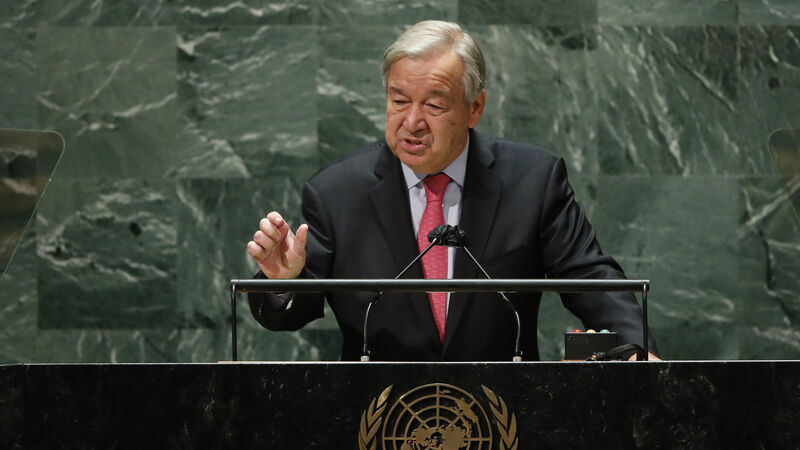Next three years critical to avoid 'unprecedented heatwaves, storms, and water shortages'

United Nations secretary-general Antonio Guterres was hugely critical of some governments' failure to react to climate change saying that some government and business leaders "are saying one thing and doing another". Picture: Eduardo Munoz/Pool Photo via AP
The next three years will be the most critical in recent global history if "unprecedented heatwaves, terrifying storms, and widespread water shortages" are to be avoided.
That is the stark warning from the latest assessment of the UN-backed Intergovernmental Panel on Climate Change (IPCC), which said it is "now or never" if the world is to limit global warming to 1.5 degrees.
CLIMATE & SUSTAINABILITY HUB













